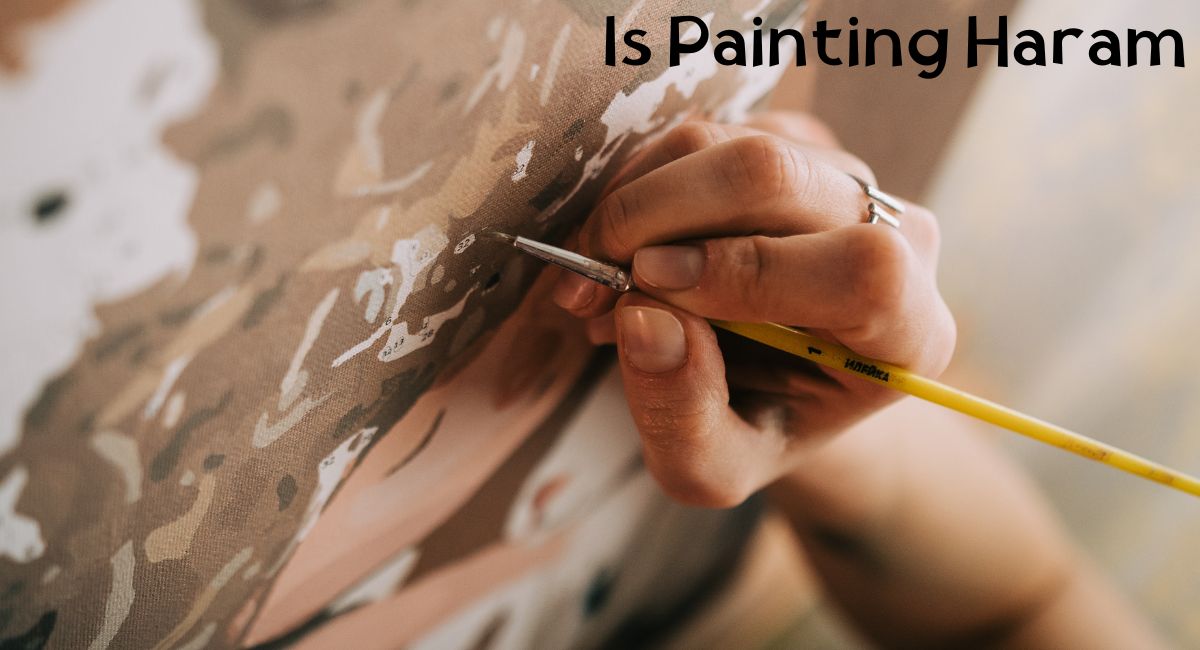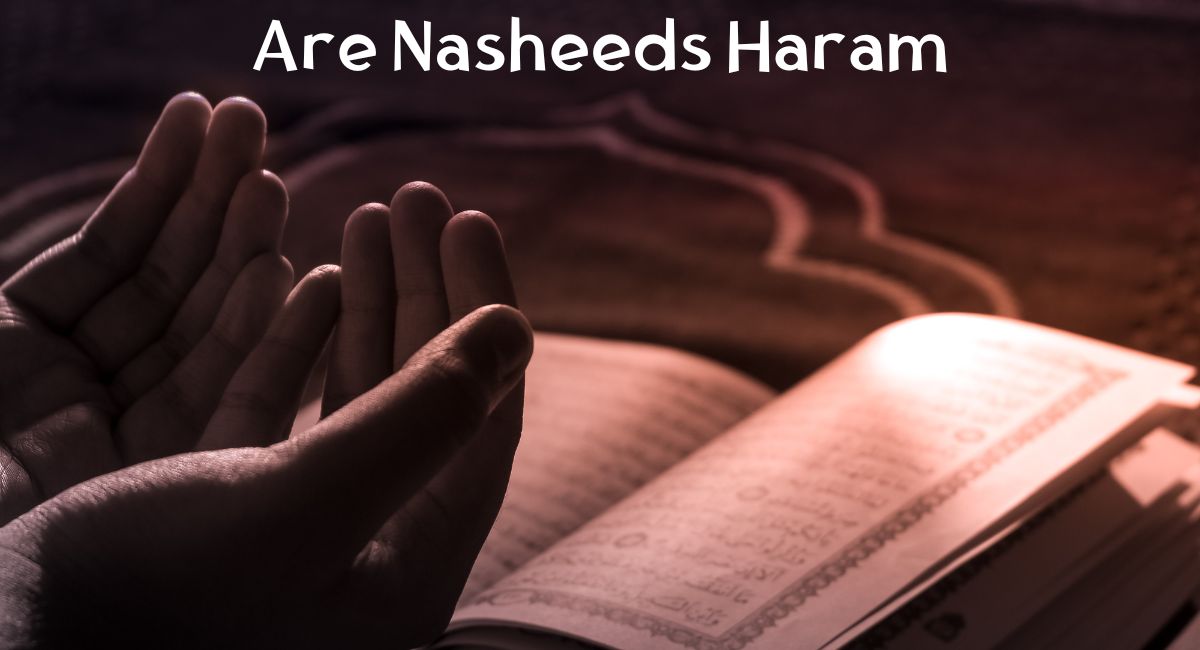Halloween, with its spooky costumes, haunted houses, and trick-or-treating, is a widely celebrated holiday in many parts of the world. However, for some individuals, particularly those of Islamic faith, the question arises: Is it haram (forbidden) to celebrate Halloween?
This article delves into a complex intersection of cultural traditions and religious beliefs, where personal convictions often play a significant role in determining whether or not one should partake in this festivity.
We will explore the various perspectives within the Islamic community regarding Halloween, the theological considerations that come into play, and how individuals can make informed choices that align with their faith and values.
Key Takeaways
- The question of whether it is permissible to celebrate Halloween in Islam is explored, considering Quranic insights, Hadiths (sayings and actions of Prophet Muhammad), Fatwas (Islamic legal opinions), and scholarly interpretations.
- Quranic verses suggest a disapproval of celebrations that lack a basis in Islamic teachings and emphasize the importance of following the truth revealed by Allah.
- Hadiths warn against imitating the practices of non-Muslims to preserve the unique identity of the Muslim community and maintain Islamic values and principles.
- Various Fatwas and scholarly opinions generally declare the celebration of Halloween as haram (prohibited) due to its roots in non-Islamic religious practices and elements of idolatry, considering it as an imitation of non-Muslim customs.
- Participating in the “trick-or-treating” custom of Halloween is generally considered haram in Islam due to its association with pagan traditions, superstitious beliefs, involvement in pagan practices, promotion of materialism, and potential negative influence on children.
- The permissibility of dressing up for Halloween in Islam is a matter of debate, with some scholars considering it haram due to its association with pagan beliefs and practices, while others believe it is permissible as long as one does not engage in any haram activities.
Why is Halloween Celebrated
Halloween, celebrated on October 31st, has deep historical roots, tracing back to the ancient Celtic festival of Samhain. This festival, observed in regions like Ireland, the United Kingdom, and northern France, marked the end of the harvest season and the onset of winter. The Celts believed that during Samhain, the boundary between the worlds of the living and the dead became blurred, allowing spirits to return to Earth. To ward off these spirits, people would light bonfires and wear costumes.
The holiday evolved further when the Romans conquered Celtic territories, blending Samhain with their own traditions like Feralia, a day to honor the dead, and a celebration for Pomona, the goddess of fruit and trees. As Christianity spread through these regions, the church aimed to replace pagan customs with Christian observances. Thus, November 1st was designated as All Saints’ Day to honor saints and martyrs, and the evening before became known as All Hallows’ Eve, eventually evolving into Halloween.
Over time, Halloween transformed from a solemn pagan ritual to a more community-focused event. In countries like America, it became a time for communal gatherings, costumes, and fun activities like trick-or-treating and carving jack-o’-lanterns. Today, Halloween is largely a secular celebration, featuring festive gatherings, costumes, and the enjoyment of treats, integrating various aspects from Celtic, Roman, and Christian traditions into the multifaceted holiday it is now.
Is It Haram to Celebrate Halloween
The question of whether it is permissible in Islam to celebrate Halloween has been a topic of interest among Muslims. Below, we’ll delve into Islamic teachings, including Quranic verses, Hadiths, Fatwas, and scholarly interpretations, to provide a comprehensive understanding of the Islamic stance on Halloween.
Quranic Insights
The Quran does not explicitly mention Halloween, as it is a modern celebration. However, the principles laid down in the Quran suggest a disapproval of such celebrations.
Quranic verses emphasize the importance of following the truth revealed by Allah and not adhering to customs and traditions that lack a basis in Islamic teachings.
For example, Quran 57:16 urges believers to engage in the remembrance of Allah and avoid becoming like those whose hearts have grown hard from following unguided traditions.
“Has the time not come for the hearts of the believers to be humbled by Allah’s remembrance and the truth that He has revealed, and not to be like those who were given the Scripture before, and a long period passed over them, so their hearts hardened, and many of them are defiantly disobedient?”
Quran 57:16
Similarly, Quran 5:104 criticizes those who follow the practices of their ancestors without seeking knowledge and guidance.
“When it is said to them, ‘Come to what Allah has revealed and to the Messenger,’ they reply, ‘Sufficient for us is that upon which we found our fathers.’ And even if their fathers did not know anything and were not guided?”
Quran 5:104
Hadith Perspective
The Hadiths, sayings and actions of the Prophet Muhammad (PBUH), provide clear guidance on this matter.
A Hadith narrated by Ibn Umar (Sunan Abu Daud 4031) states
Narrated Abdullah ibn Umar:
The Prophet said: He who copies any people is one of them.
Sunan Abi Dawud 4031
This Hadith is often cited in the context of Halloween, as it warns against imitating the practices of non-Muslims.
The central message of this Hadith is about avoiding imitation of non-Islamic cultures and traditions, particularly when these imitations could compromise Islamic values and principles. The Hadith emphasizes the importance of preserving the unique identity of the Muslim community and cautions against the adoption of practices that may lead to the dilution or loss of Islamic beliefs and customs.
Another Hadith by Abdullah ibn Amr further emphasizes this point, warning against celebrating non-Islamic religious occasions and emulating their practices.
It states: “Whoever resides in the lands of the non-Arabs and then celebrates their religious occasions (such as Nairuz and Mihrajan – Persian holidays) and emulates their practices and thereafter dies in such a condition, shall be raised with them on the Day of Judgement.”
Source
This Hadith emphasizes the importance of maintaining Islamic identity and practices, especially when living in a non-Muslim society. It cautions against the adoption of non-Islamic religious practices and celebrations, as doing so could lead to a loss of Islamic identity and values
Fatwas and Scholarly Opinions
Various Islamic scholars and councils have issued Fatwas (Islamic legal opinions) on the celebration of Halloween by Muslims, generally declaring it as haram (prohibited). Here are some of these Fatwas:
Fatwa Committee of the National Council: This committee has issued a Fatwa prohibiting the celebration of Halloween for Muslims. The celebration is considered a form of tasyabbuh (imitation) with non-believers in terms of beliefs, actions, and clothing. It is stated that Halloween involves wearing costumes and celebrating in a way that is contrary to Islamic values.
National Fatwa Council of Malaysia: The council has specifically forbidden Malaysian Muslims from celebrating Halloween. The Fatwa was issued based on the understanding that Halloween is a Christian celebration rooted in All Hallow’s Eve, which is considered against the teachings of Islam. The council categorized Halloween as a celebration of the dead, which is against Islamic teachings, and advised Muslims to pray for their deceased instead.
Syeikh Muhammad Salih al-Munajjid: A well-known Islamic scholar, Syeikh Muhammad Salih al-Munajjid, has stated that it is prohibited for Muslims to celebrate Halloween because it resembles the practices of non-believers. His opinion aligns with the general view that such imitation is against Islamic principles.
Syeikh Dr. Ahmad Sa’id Hawwa: A member of the Syrian Islamic Council, Syeikh Dr. Ahmad Sa’id Hawwa, has also declared that celebrating Halloween is prohibited for Muslims. He emphasized that Halloween is a holy day celebrated by Christians, and participating in their celebrations is forbidden for Muslims.
These Fatwas and scholarly opinions converge on the point that Halloween, with its origins in non-Islamic religious practices and elements of idolatry, is incompatible with Islamic teachings. The celebration of Halloween is seen as an imitation of non-Muslim customs, which is discouraged in Islam.
Is Participating in Trick or Treat Custom Haram
In Islamic tradition, participating in the “trick-or-treating” custom of Halloween is generally considered haram, or forbidden. This is primarily due to the fact that Halloween itself is rooted in pagan traditions and practices that contradict Islamic beliefs.
1. Pagan Origins and Symbolism: Halloween, with its emphasis on costumes representing spirits and supernatural beings, aligns with pre-Christian pagan practices that venerated deities associated with death and the underworld. This aligns with the concept of shirk (polytheism), which is strictly prohibited in Islam.
2. Superstitious Beliefs: Halloween is often associated with superstitious beliefs and practices, such as divination, fortune-telling, and seeking protection from evil spirits. These beliefs are considered contrary to Islamic principles, which emphasize reliance on God and adherence to divine guidance.
3. Involvement in Pagan Practices: While the act of trick-or-treating itself may seem harmless, it inadvertently connects individuals to the broader context of Halloween, which is rooted in pagan traditions. Participating in these traditions is viewed as a form of acceptance and endorsement of their underlying beliefs and practices.
4. Promotion of Materialism: Halloween is often seen as a commercialized event driven by consumerism and the pursuit of material possessions. This emphasis on material wealth over spiritual values contradicts Islamic teachings that emphasize moderation and contentment.
5. Negative Influence on Children: Exposing children to the supernatural themes, superstitious practices, and materialistic aspects of Halloween may have negative impacts on their understanding of faith and values. It may also lead to fear, anxiety, or confusion about the nature of the spiritual world.
Is Dressing Up for Halloween Haram
The permissibility of dressing up for Halloween in Islam is a matter of debate among Islamic scholars. Some scholars believe that it is haram (prohibited) because it is associated with pagan beliefs and practices, while others believe that it is permissible as long as one does not engage in any activities that are haram, such as worshipping the dead or participating in seances.
Those who believe that dressing up for Halloween is haram cite the following reasons:
- Halloween has pagan origins. Halloween is a holiday that originated in Celtic cultures and was originally celebrated as a pagan festival called Samhain. Samhain was a time when people believed that the veil between the living and the dead was thin, and they would dress up in costumes to ward off evil spirits.
- Halloween is associated with witchcraft and the occult. Many of the symbols and traditions of Halloween are associated with witchcraft and the occult, such as black cats, witches, and broomsticks. Muslims believe that witchcraft is a form of shirk (associating partners with Allah), which is a major sin in Islam.
- Halloween is a holiday of fear and darkness. Halloween is often associated with fear and darkness, and some Muslims believe that this can have a negative impact on their children’s minds and hearts.
Those who believe that dressing up for Halloween is permissible cite the following reasons:
- Halloween is now a secular holiday. In many countries, Halloween is now celebrated as a secular holiday, and there is no longer any religious connection to the holiday.
- Dressing up for Halloween can be fun for children. Dressing up in costumes and going trick-or-treating can be a fun and enjoyable activity for children.
- Dressing up for Halloween does not necessarily mean that one is endorsing the pagan beliefs and practices associated with the holiday. One can dress up for Halloween without believing in any of the pagan beliefs or practices associated with the holiday.
Ultimately, the decision of whether or not to dress up for Halloween is a personal one that each Muslim must make for themselves. There is no right or wrong answer, and it is important to consider all of the factors involved before making a decision.
Here are some additional things to consider:
- The age of the child: Dressing up for Halloween may be more appropriate for younger children who may not understand the religious implications of the holiday. Older children may be more aware of the religious implications of the holiday, and parents may want to discuss this with them before making a decision.
- The cultural context: Halloween is celebrated differently in different cultures. In some cultures, Halloween is a more secular holiday, while in other cultures, it is still associated with pagan beliefs and practices. Muslims should consider the cultural context in which their children are celebrating Halloween before making a decision.
- The individual’s beliefs: Muslims should also consider their own beliefs when making a decision about whether or not to dress up for Halloween. Some Muslims may feel comfortable dressing up for Halloween, while others may feel that it is haram.
It is important to remember that there is no one-size-fits-all answer to the question of whether or not dressing up for Halloween is haram. Each Muslim must make their own decision based on their own personal beliefs and circumstances.
Is It Allowed to Go to Halloween Parties
In Islam, Halloween is not considered an Islamic holiday and its origins are rooted in pagan traditions that are not in accordance with Islamic teachings. Therefore, attending Halloween parties or participating in Halloween festivities is generally discouraged or considered haram (forbidden) in Islam.
The primary reason for this stance is that Halloween has its roots in ancient pagan celebrations that involved rituals and practices that are considered contrary to Islamic beliefs. These include:
- Celebrating the Dead: Halloween is associated with the belief in communicating with or worshiping spirits of the dead, which is considered shirk (associating partners with Allah) in Islam.
- Dressing Up as Monsters or Evil Figures: The use of masks, costumes, and symbols associated with fear and evil is not in line with Islamic values of modesty, goodness, and avoiding practices that promote fear or superstition.
- Emphasis on Mischief and Pranks: Halloween often involves activities that promote mischief, pranks, and even violence, which are not considered acceptable in Islamic teachings.
It is important to note that there are some variations in opinion among Islamic scholars regarding Halloween. Some may consider it permissible to attend Halloween parties if the focus is purely on socializing and enjoying the festivities without engaging in any practices that contradict Islamic beliefs. However, the majority of scholars discourage participation due to the overall pagan and superstitious nature of the holiday.
In general, Muslims are encouraged to avoid participating in celebrations or practices that have roots in pagan or non-Islamic traditions, as these can lead to unintended consequences, such as spiritual harm or the weakening of one’s faith. Instead, Muslims should focus on celebrating their own religious holidays and engaging in activities that are consistent with Islamic teachings and values.






